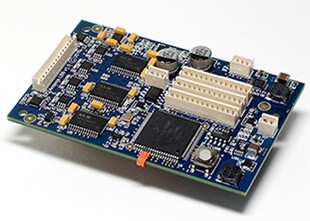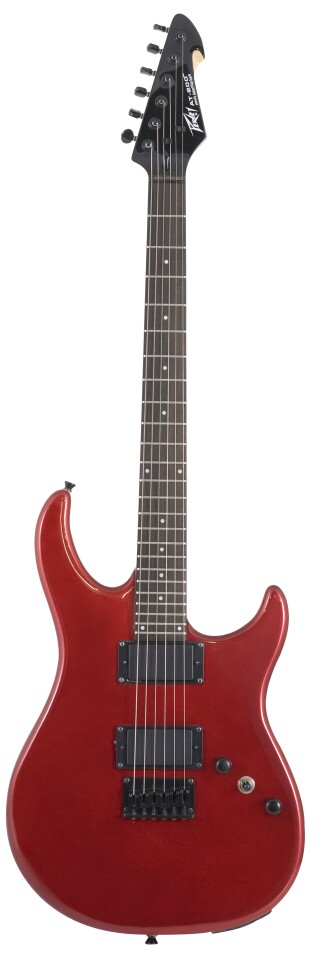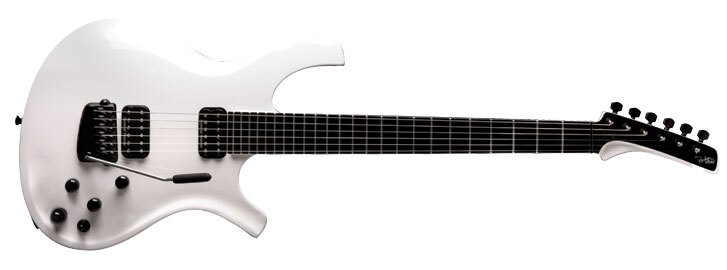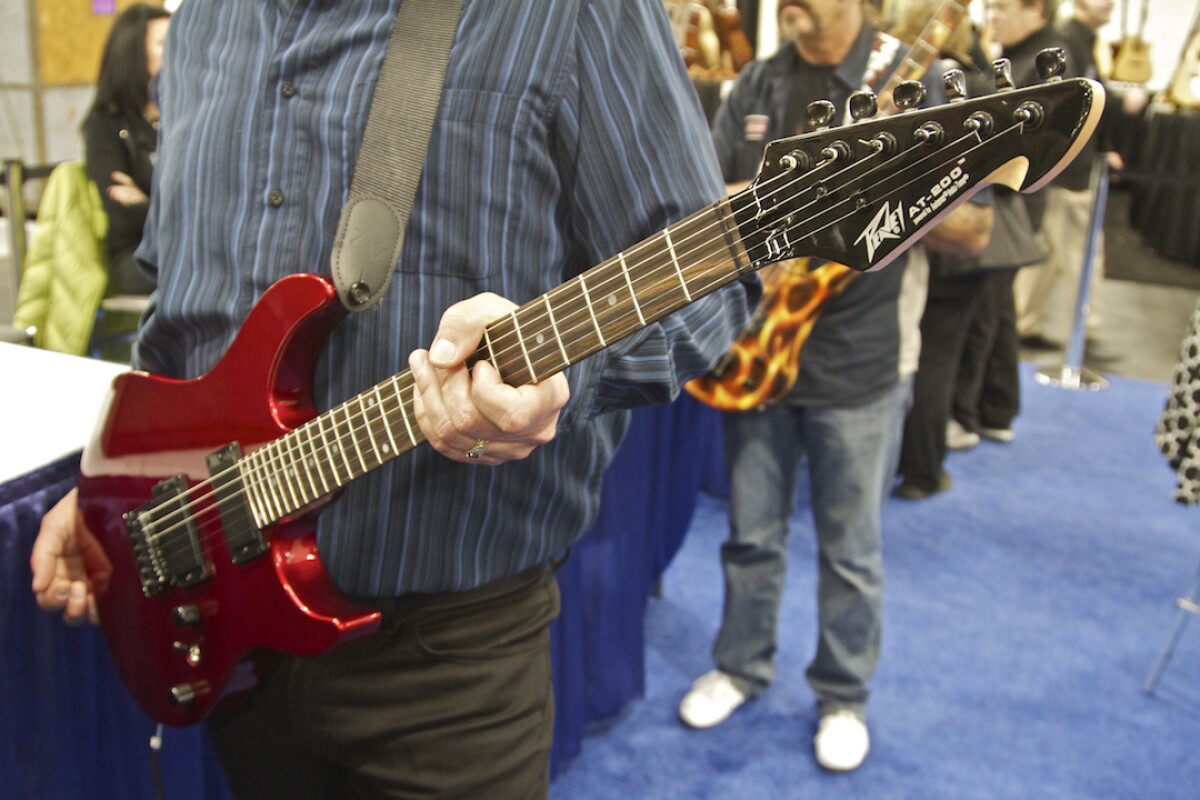The sound and feel of modern music was changed forever in the late 1990s when Antares launched its Auto-Tune pitch correction technology. As well as putting some life back into flat performances, the system was also used to great effect by the likes of Cher and T-Pain to give a unique twist to vocal tracks. The company announced its intention to bring the technology to the electric guitar in May 2011, sending shivers down the spines of purists everywhere. Now Peavey and Parker have launched the first guitars to incorporate Auto-Tune for Guitar and we've had the chance to take a closer look at the former's AT-200 in action at Winter NAMM in Anaheim. The verdict: pretty impressive.
When I first heard about Auto-Tune for Guitar from Antares last year, I have to admit to being a little apprehensive. We've all heard what the technology did for vocal performances, causing quite a bit of controversy along the way - could we expect similar highs or horrors (depending on which camp you belong to) from ATG-6? I'm happy to say that a press preview of the technology put my mind at rest.

As well as automatically keeping an out of tune instrument in perfect concert pitch (without relying on robotic tuners like Gibson's Les Paul Dark Fire or Firebird X), and providing impressive intonation, the technology also offered guitar and pickup emulation (which allows one guitar to sound like many different models, similar to Music Man's Game Changer guitar), and popular alternative tunings like open D and DADGAD in an instant.
Auto-Tune for Guitar can also extend the scope of the electric guitar beyond what is usually possible - players can split a guitar's string setup, for instance, so that the low E and A strings can be used for bass lines, with the rest remaining in standard or alternative tuning, or turn a six-string into a twelve string without so much as touching the hardware setup.
Auto-Tune for Guitar is, of course, open to tonal experimentation in much the same way as the vocal version of the technology, and while a "T-Pain for guitar" may not sound too appealing, the possibilities for extending the reach of the electric guitar would appear to be limited only by the imagination of the artist. It will also undoubtedly save time in the studio by keeping instruments in tune throughout the whole recording session, and there's no longer a need to swap guitars during live shows or retune after every song.
It's been a good while since the original announcement but the technology is finally making its way to commercially-available instruments, courtesy of Peavey Electronics and Parker Guitars.
The Peavey AT-200
Peavey demonstrated its new AT-200 at NAMM, so we made the most of the opportunity to get up close. It looks and sounds like a conventional electric guitar but thanks to the built-in Auto-Tune technology, the instrument is always in tune, with perfect intonation. The Antares Solid-Tune Intonation system constantly monitors the pitch of a string and automatically adjusts the tuning and intonation so that each note or chord is always in tune. The technology is said to be intelligent enough to know when players are intentionally manipulating the pitch, such as bending a string or using vibrato.

As you can see, the guitar still has physical tuners and the strings will need to be fairly taught. There is a limit to how physically out of tune the guitar can be, but the NAMM demo we witnessed certainly showed that it can immediately correct what was a woefully out of tune guitar. We were particularly impressed by the technology being able to differentiate between a slight unintentional bend and a deliberate one. If the bend is way below a semitone, for example, the system will "assume" it's a mistake and will retain pitch.
Peavey hasn't revealed too much information about the guitar itself, the focus is very much on the Auto-Tune technology, but the built-in software can be upgraded and new features loaded into the guitar via a MIDI interface. The instrument can also be controlled by MIDI hardware running Auto-Tune software, and is not limited to hardware like foot switches and control surfaces, tablets and smartphones could also be used.
Peavey's AT-200 will be available from July 2012 for an, as yet, unspecified price.
The Parker ATDF842 Autotune MaxxFly

Parker Guitars has also incorporated the Antares pitch correction technology into one of its MaxxFly models, but has opted for the full sonic tweaking package. Additionally, the Parker ATDF842 Autotune MaxxFly offers guitar and pickup emulation, alternative tunings, and a virtual capo with a two octave range.
The guitar has a carved Alder body with a polyurethane finish and basswood neck with 22 frets on a fingerboard fashioned from a carbon-glass-epoxy composite. It also features Parker's own vibrato bridge and saddles, Sperzel tuners, Seymour Duncan pickups, and a 6-element Graphtech Ghost piezo.
As with the AT-200, the Autotune MaxxFly includes a MIDI interface that allows every function to be controlled by standard MIDI continuous controller messages from programmable control surfaces, foot controllers, computers and so on. The system's firmware can also be updated using standard MIDI Sysex files.
Availability is also penciled in for the middle of the year but again, pricing information has not yet been revealed.












